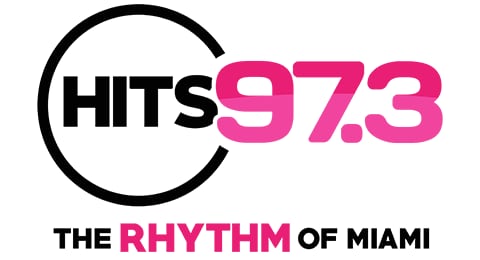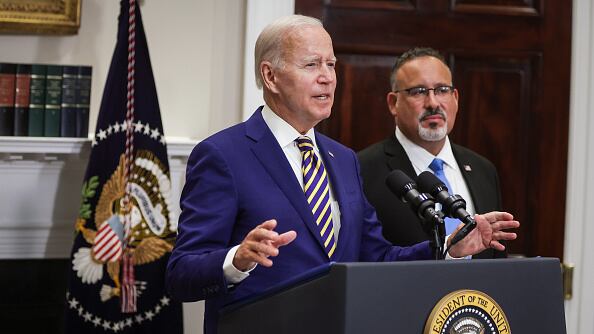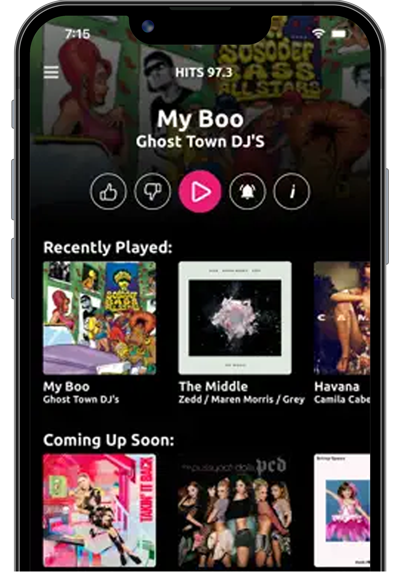The US Supreme Court could release its opinion Tuesday on challenges to President Joe Biden’s student debt forgiveness program, deciding whether the administration has the authority to cancel up to $20,000 in federally backed loans for eligible borrowers.
The decision will affect millions of people who took out student loans to pay for college debt.
Biden announced the program in August saying it would allow up to 40 million borrowers to receive $10,000 of student loan forgiveness for those making less than $125,000 a year, or households making less than $250,000.
Those who have taken out Pell Grants to pay for their education would receive an additional $10,000 in loan forgiveness.
According to the Department of Education, 26 million people submitted applications for relief of federally backed student loans with 16 million approved before the program was put on hold after several lawsuits were filed against Biden and the department over the plan.
The U.S. Supreme Court agreed to hear two of the cases that challenge the administration’s plan. The cases were argued before the court on Feb. 28.
An injunction pausing the program remains in place until the justices issue their opinion.
What are the cases the Supreme Court is ruling on?
The Biden administration argues that the authority to forgive the debt comes from the 2003 Higher Education Relief Opportunities for Students (HEROES) Act. The act grants the Department of Education the power to waive student loan repayments for those impacted by “a war or other military operation or national emergency.”
The act was passed in the wake of the 911 terror attacks.
According to an amicus brief filed with the Supreme Court by several former Republican congressmen, including former Speaker of the House John Boehner, “Congress never intended anything like the loan cancellation effort underway here.”
The court agreed to hear arguments in these lawsuits:
Biden v. Nebraska: Attorneys general in six states -- Arkansas, Iowa, Kansas, Missouri, Nebraska and South Carolina -- filed a challenge to the student loan forgiveness plan on Sept. 29, 2022, arguing that the program could harm state tax revenues and diminish investments that are connected to student loans.
Department of Education v. Brown: The Job Creators Network Foundation filed a lawsuit in Texas on Oct. 10, 2022, on behalf of Myra Brown and Alexander Taylor, two student-loan borrowers. The suit argued that the Biden administration failed to allow for the traditional “notice and comment” period when it introduced the debt forgiveness plan.
Federal law requires government agencies to allow at least 30 days after publication for the public to submit “written data, views, or arguments” regarding a proposed rule.
What is the court trying to decide?
The court will rule on two questions in the suits – standing and merit.
Standing: The court will decide whether the people who brought the suits have standing in the case – meaning do they have the right to sue.
To have standing in the case, the people who brought the suit must show they are being harmed by the student loan forgiveness plan. Or they must show that a court can fix the situation.
If the court says the parties do not have standing, the cases will be dismissed.
Merit: If the court rules on the merits of the case, it will decide if the Department of Education has the authority to forgive student loan debts.
If the court says the DOE does not have the authority to erase the debt, the plan Biden announced last August will be dead.
When do payments begin again on federally backed loans?
Federal student loan payments and interest charges have been paused nine times since they were initially put on hold in March 2020 as the COVID-19 pandemic erupted. No matter how the court decides, borrowers will have to begin repaying loans by the end of summer.
A provision in the debt ceiling deal passed by Congress requires that payments be restarted 90 days after a June 30 deadline. The payments may not be paused again unless Congress approves it.
The DOE confirmed earlier this month that interest on student loans will resume on Sept. 1 with payments due beginning in October.










